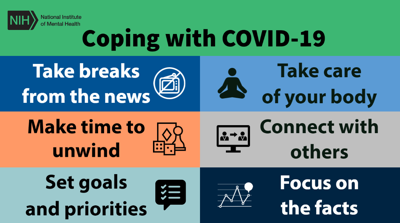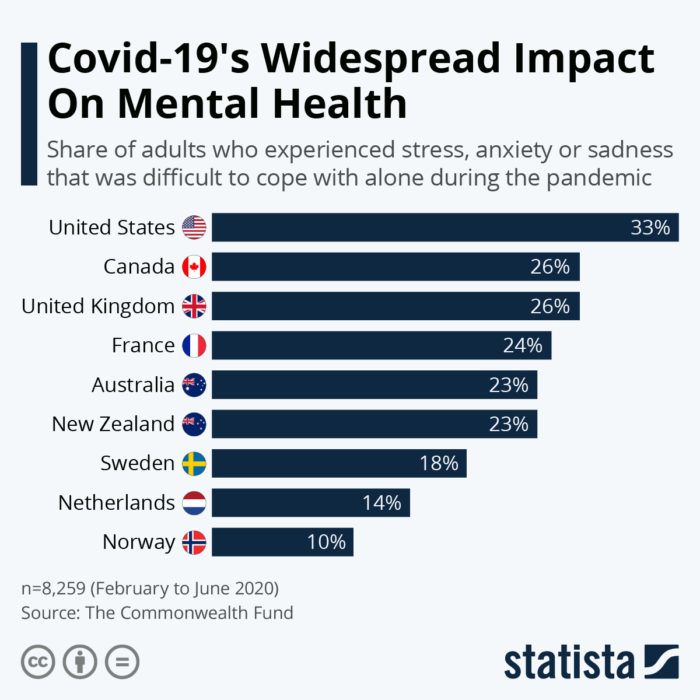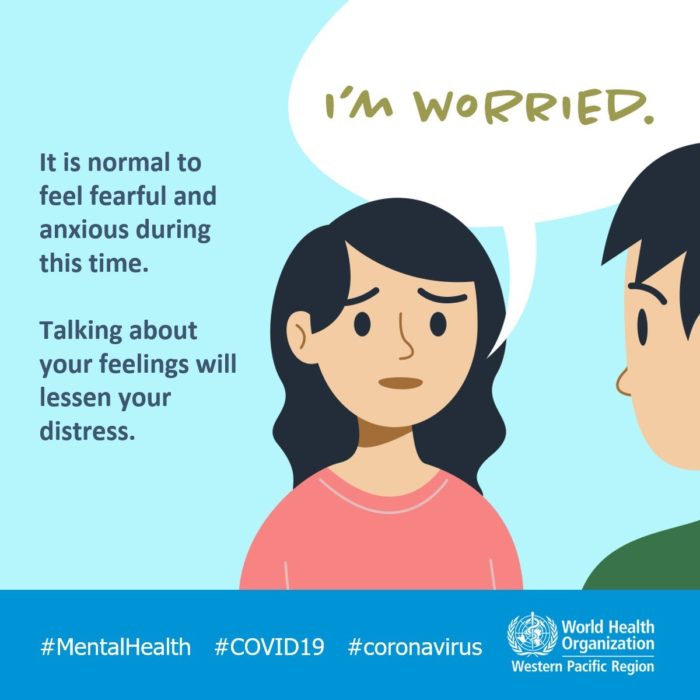By Pushpita Saha
The challenge of being made to stay isolated inside the family home for eight months arrived like a dream—good or bad—for many. As that dream became a reality, the world quickly transformed. We fell prey to an illusion that quarantine life would be easy and laid back. However, that most definitely was not the case. A majority of teens suffered during these challenging times. Not only are we living during a worldwide crisis, but our everyday routines have also become virtual.
Most importantly, school. We have to make a decision between getting straight A’s or coping with our mental health. Given the sudden halt to in-person learning, students missed their friends, yearned to be out of the house, became mentally unbalanced, and developed erratic sleep habits. On top of that, many teens dealt with the trauma of sick or dying family members, and economic struggles.
The Correlation Between Virtual Learning and Anxiety + Depression
Amid school closures, we often feel lonely without regular social interaction. From personal experience, I know interacting with others is what kept me motivated. Nonetheless, the transition has most definitely interfered with my understanding of the curriculum. A majority of teens have felt the anxiety and increased pressure triggered by just the idea of an assignment submitted by 11:59, on top of a lack of concentration and increased distractions in our work environment.
Most importantly, many may feel self-conscious or anxious being front and center on a Zoom call. Not only does this type of intense visibility disrupt self-confidence, it also causes extreme anxiety in a large number of teens. It can also cause awkward silences or reduced interactions, making it harder for students to ask questions about topics around which they have minimal understanding. Furthermore, speaking from yet another’ perspective, teens who are not neurotypical may feel overwhelmed. For instance, a child with ADHD may struggle with the concentration aspect of virtual learning. It’s nearly impossible to sit alert in front of a computer for long periods of time. Zoom exhaustion does exist! Staring at a screen for 8 hours a day is excessive and very draining. It’s impossible to process nonverbal cues, and understand lessons just by vocal tone or remote body language. A student once remarked, “It’s nerve-wracking to know you might be late to class or unable to turn in homework due to circumstances beyond your control.” A similar worry was voiced about anticipating teacher intolerance. “[M]any young people I work with are fearful that their teachers won’t be understanding of these issues.” This reveals the anxiety and fear attached to wondering whether one’s teacher will be understanding of at-home problems.
How does one cope when you’re struggling?
- Take care of your body! Meditate, Take deep breaths, Stretch, Relax, Get plenty of sleep, exercise regularly, and Try your best to avoid excessive alcohol and drug use.
- The world is terrifying right now. Take breaks from watching, reading, or listening to news stories if they increase your anxiety.
- Find hobbies or do things you love to distract yourself!
- Connect with your family or friends. Talk to people you trust about your feelings. It’ll give you a sense of relief.
- Virtual Counseling exists! Take the opportunity to get some if you need it.
Take advantage of your time at home!
Everything virtual may seem like a nightmare right now, but remember it’s not all bad. Certain aspects of quarantine life—like increased time for family and personal reflection—may actually be of benefit to your mental health, whether you know it or not!


